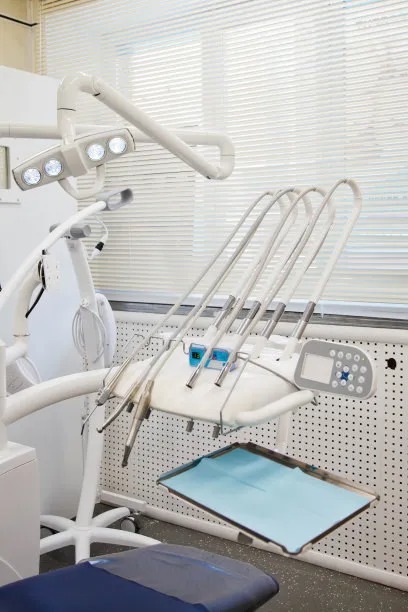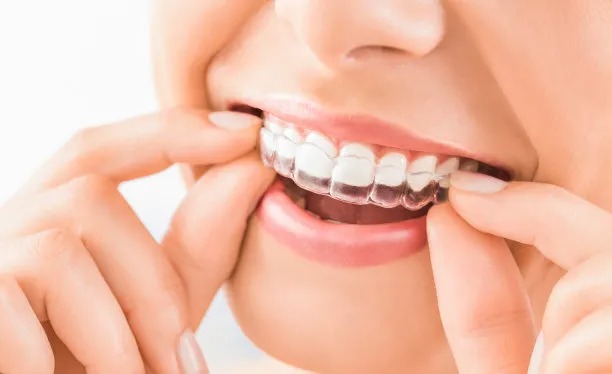Summary: Dental implants have revolutionized the way we approach restorative dentistry, offering numerous benefits for both functional and aesthetic purposes. This article explores four primary areas regarding dental implants: the significant health benefits they provide, the latest innovations in implant technology, the psychological impact of enhanced smiles, and the long-term advantages they present compared to traditional dentures. Through a detailed discussion of these aspects, we aim to illuminate how dental implants not only improve oral functionality but also elevate individual confidence by fostering healthier smiles.
1. Significant Health Benefits of Dental Implants

Dental implants play a crucial role in maintaining oral health by preventing bone loss, which is common after tooth extraction. The implants serve as artificial tooth roots and stimulate the jawbone, promoting its density and overall health. This stimulation is essential for preserving the jawbone structure, thereby avoiding the sunken facial appearance often associated with missing teeth.
Moreover, dental implants improve chewing efficiency, allowing patients to enjoy a wider variety of foods. Unlike traditional dentures, which can slip or cause discomfort, implants offer a stable solution, empowering individuals to eat their favorite meals without worry. This enhancement in diet can lead to better nutrition and overall health.
Additionally, dental implants contribute to improved oral hygiene. They are easier to clean than dentures, reducing the risk of gum disease, which can arise from plaque accumulation around poorly fitting dental appliances. By opting for implants, patients benefit from a more straightforward oral care routine, leading to healthier gums and teeth.
2. Latest Innovations in Implant Technology
The field of dental implants has seen remarkable advancements, particularly in the materials used for their construction. Innovations such as titanium and zirconia implants reduce the risk of rejection and improve compatibility with human bone. These materials enhance the longevity and success rate of implants, ensuring a durable solution for patients.
3D imaging and computer-guided implant surgery have transformed the way dental implants are placed. This technology allows for precise planning and placement, minimizing surgical complications and recovery time. Patients can enjoy a quicker and more comfortable experience with higher success rates, all thanks to these technological advancements.
Another significant innovation is the development of mini dental implants. These smaller versions cater to patients with insufficient bone structure who may not qualify for traditional implants. Mini implants possess a simplified placement process and are less invasive, making them an attractive option for those seeking an improved smile without extensive surgery.
3. Psychological Impact of Enhanced Smiles
The transformation brought about by dental implants extends beyond physical appearances and oral functionality; it also significantly affects mental well-being. A beautiful smile can boost self-esteem and body image, empowering individuals to engage more confidently in social situations. Many patients report feeling more attractive after receiving implants, which can positively influence personal and professional interactions.
Moreover, dental implants can alleviate feelings of embarrassment or self-consciousness associated with missing teeth. Patients often experience relief from the anxiety that comes with wearing dentures, which can sometimes shift or slip at inopportune times. This newfound confidence allows individuals to focus on enjoying life rather than worrying about their appearance.
Overall, the psychological benefits of dental implants can lead to improved quality of life. Enhanced self-confidence often translates into increased participation in social activities, career advancements, and an overall brighter outlook on life.
4. Long-Term Advantages over Traditional Dentures
When evaluating dental solutions, many patients find that the long-term benefits of dental implants far outweigh those of traditional dentures. Implants, when properly cared for, can last a lifetime, whereas dentures typically need to be replaced every five to ten years. This longevity translates into fewer financial burdens over time, making implants a more cost-effective solution.
Additionally, dental implants require no special adhesives or solutions for maintenance. This ease of care is a significant advantage, reducing the stress associated with daily denture use. Patients can maintain a regular oral hygiene routine without the need for elaborate cleaning rituals designed solely for dentures.
Furthermore, dental implants eliminate the discomfort that often accompanies dentures. Many users experience sore spots, irritation, or jaw pain from traditional dental appliances. Implants, on the other hand, integrate seamlessly with the jawbone, providing a stable and comfortable fitting that enhances the overall quality of life.
Summary:
In conclusion, dental implants represent a transformative solution for those seeking improved oral health and functionality. Their significant advantages over traditional restorative options include enhanced health benefits, groundbreaking technological innovations, and a profound psychological impact that boosts self-confidence. Choosing dental implants ensures a healthier, happier smile and an improved quality of life for years to come.
This article is compiled by Vickong Dental and the content is for reference only.
Vickong Dental
Vickong Dental is a large medical group established in Hong Kong in 2008 by professors from well-known medical universities in Guangdong and Hong Kong, as well as medical doctors from key national '985' universities (including Master's supervisors and senior professors). The chain of branches brings together expert dentists with PhDs and Master's degrees from Hong Kong and Mainland China, committed to providing high-quality dental treatment.
"Vickong Dental Practices the University Motto of 'Healing and Serving Society,' with a Stable Operation for Sixteen Years. It Has Been honored with Hong Kong Enterprise Leaders's Choice,' and is a Global Trusted Implant Center for the Nobel Implant System. Recommended by Hong Kong Metro Broadcast and Guangdong Television, it Serves Customers from Over Thirty Countries and Regions, Gaining the Trust and Favor of Citizens from the Guangdong-Hong Kong-Macau Greater Bay Area and Surrounding Cities.

Thousands of customers' unanimous praise
The most recognized and highly recommended dental service by customers in the Guangdong-Hong Kong-Macau Greater Bay Area
We Ensure You Receive Detailed Care and Attention Here
Hong Kong standards, Shenzhen prices, Your Trusted English-speaking dentists

Vickong Dental Medical-Grade Instrument Disinfection Process
Vickong Dental Medical-Grade Instrument Disinfection Process

Vickong Dental Chain: A Warm and Comfortable Environment for Treatment






Appointment Hours

Q&A
Why choose Vickong Dental?
Vickong Dental practices the university motto 「Medicine to Benefit Society」, with each branch bringing together highly qualified dentists with doctoral and master’s degrees from Hong Kong and the Mainland, and has maintained seventeen years of steady operation。Recipient of 「2024 Hong Kong Enterprise Leaders Brand」, 「2025 Hong Kong Enterprise Leaders Brand」, a Nobel Biocare Global Trusted Implant Center, and a brand recommended by Metro Radio Hong Kong and Guangdong TV。
To date, we have served customers from more than thirty countries and regions,earning exceptionally high word-of-mouth recognition and trusted recommendations from residents across the Guangdong-Hong Kong-Macao Greater Bay Area and surrounding cities
We have eight major branches in Zhuhai、Shenzhen,and a consultation and service assurance center in Hong Kong,so you can book a free consultation at any time for any questions,which is very reassuring.
If I do not accept the quotation after the CT scan, will I be charged??
No! As long as the actual treatment has not started, you will not be charged any fees.
Will there be any additional charges during the treatment process?
No, there won’t be any additional charges. Before treatment begins, we will clearly explain the treatment plan and its corresponding fees. Only after the patient agrees and signs the consent form will we proceed with the dental service.
Can I pay in Hong Kong dollars?
Yes. Vickong Dental accepts payment in Hong Kong dollars. The amount will be converted based on the exchange rate of the day, and the applicable rate will be clearly communicated to you in advance.
Can I reschedule my appointment at any time?
Yes. Please contact us via **WeChat** or **WhatsApp** as early as possible, providing your original appointment time and details, along with your preferred new date and time slot for rescheduling.













